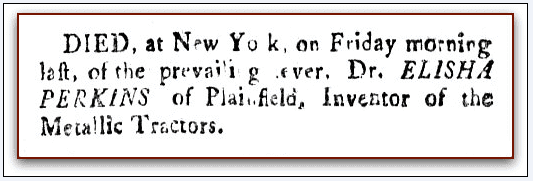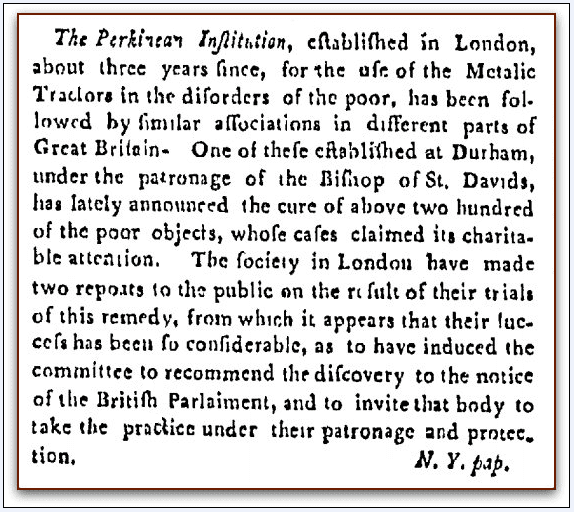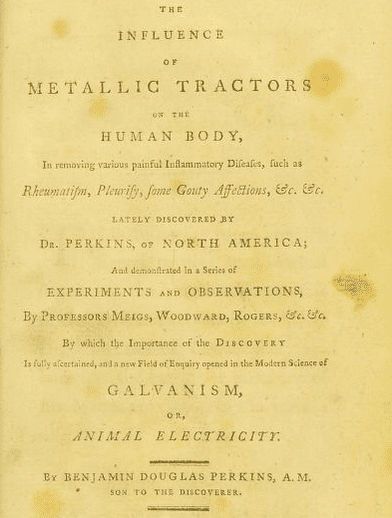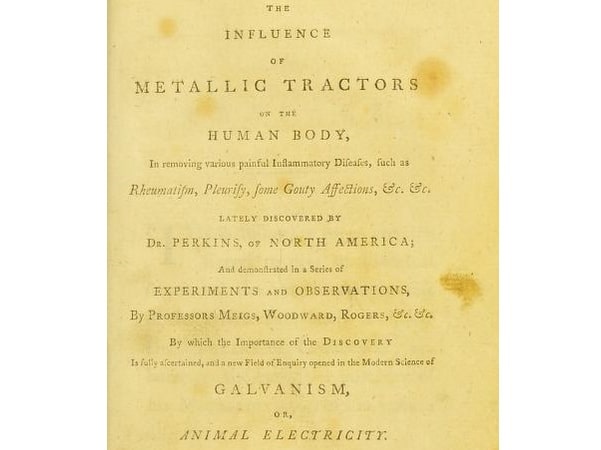Here is the death notice of Dr. Elisha Perkins (1741-1799). It is fairly straightforward.

The death notice tells us that Perkins died in New York City on Friday morning, 6 September 1799, and that he was the inventor of “metallic tractors.”
Wait – he was the inventor of the metal tractor? In the 1700s?
Didn’t John Deere (1804-1886) or Cyrus McCormick (1809-1884) invent the metal tractor in the 1800s?
What exactly did Elisha Perkins invent?
Looking for more information in GenealogyBank’s Historical Newspaper Archives, I found this article in the Norwich Courier reporting that Perkins’ “metallic tractors” were being used to cure people in Great Britain – including over two hundred people in Durham, England.

So, Perkins’ “metallic tractors” was some sort of medical device.
Dr. Perkins’ son Benjamin Douglas Perkins wrote a booklet in 1798: The Influence of Metallic Tractors on the Human Body, in Removing Various Painful Inflammatory Diseases, Such as Rheumatism, Pleurisy, Some Gouty Affections, &c. &c. Lately Discovered by Dr. Perkins, of North America.

Perkins’ metallic tractors were actually just two small metal rods he used to prod and massage areas of inflammation – not the kind of tractors used in farming, as we might initially assume when reading Perkins’ death notice.
According to Wikipedia: “The Connecticut Medical Society condemned the tractors as ‘delusive quackery,’ and expelled Perkins from membership on the grounds that he was ‘a patentee and user of nostrums.’”
Genealogy Tip: Don’t assume anything during your genealogy research. At first glance it appeared that Elisha Perkins had invented an early version of the farming tractor – but by digging deeper we see that his invention was actually a quack medical device.
Related Articles:
